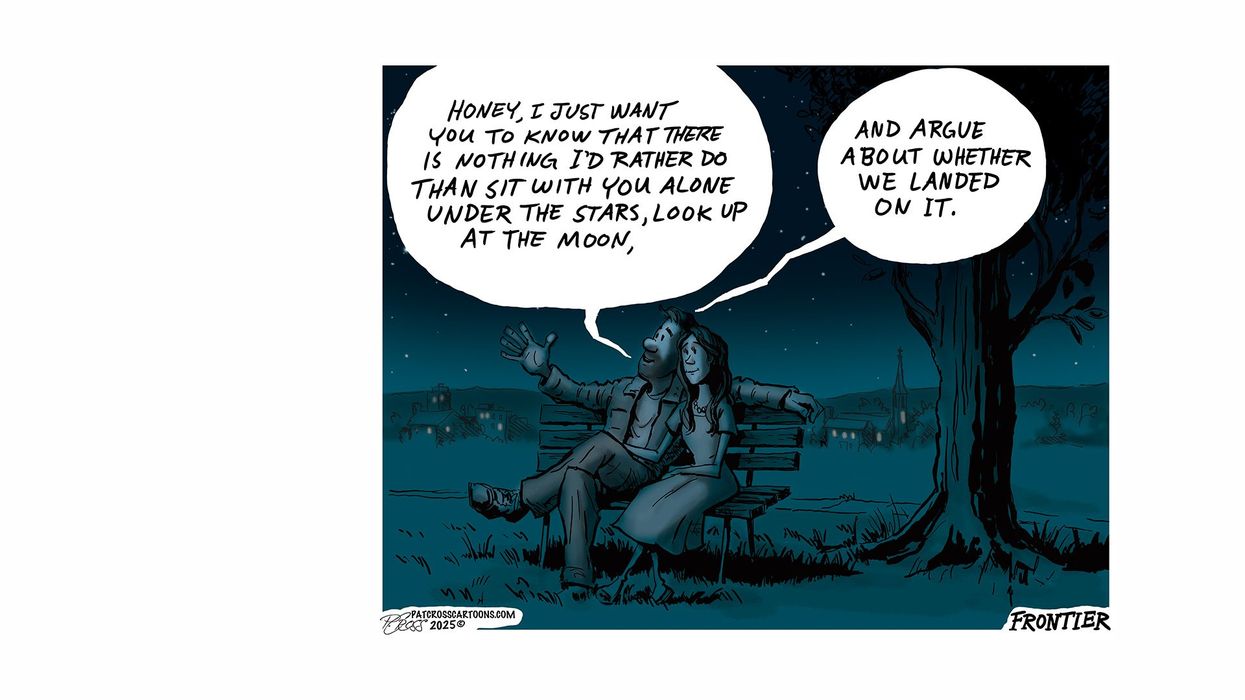
© 2026 Blaze Media LLC. All rights reserved.
There is a certain kind of man who does not trust what he is told. He looks at the official narrative the way a seasoned rancher looks at a senator trying to sell public lands: with one hand on the rifle. He knows the game is rigged.
In modern America, they call him a conspiracy theorist—a phrase engineered to shame him, to drive him out of polite company. But not long ago, such a man was simply called a citizen. Or, in the best cases, a journalist.
We no longer live in that country. We live in a land of curated news feeds, government-influenced algorithms, and a professional class of smiling liars. And in this carnival of distortion, to ask the obvious questions is now dangerous business.
“Why does the government need to track every dollar you spend?” “Why are Big Tech and federal agencies coordinating behind closed doors?”
“Why do the same hands profit from every war?”
These are not paranoid questions. They are civic questions. But here’s the trick: to prevent them from being asked, the term conspiracy theory was weaponized—a one-size-fits-all slander that short-circuits thought. And the masses, desperate to be told everything is fine, will laugh along and trust the Science.
The Founding Fathers were, by definition, conspirators.
The Founding Fathers were, by definition, conspirators. Washington and Franklin met in secret. Hamilton and Madison were anon writers. Every great upheaval in history has required men who plotted behind closed doors. To pretend that modern power—far more vast, far more centralized, far more digitized—would somehow refrain from doing the same is not innocent. It is stupidity.
History is a bloody record of men conspiring. The CIA ran mind-control experiments on American citizens—facts now confirmed in court and history books. The Gulf of Tonkin was a lie. Watergate was a conspiracy. COINTELPRO was a conspiracy. The corporate press buried the Epstein story. On it goes.
Now, let us be clear: not every theory is true. The world is full of fools. There are men who see plots in their cereal. We definitely landed on the moon. But here is the point the corporate press will never acknowledge: the existence of bad theories does not disprove the existence of conspiracies.
And yet today, if a man notices patterns or asks forbidden questions, he is tarred and feathered as a crank. The genius of this trick is that it protects the system from scrutiny. The conspiracy theorist is not attacked on the facts—he is discredited in the eyes of the mob.
But power does conspire. It always has. It always will. Only a fool or a man on the payroll could think otherwise.
The corporate press will not save you. The Ivy League will not save you. Your favorite news anchor is reading from a script. The only defense left is the stubborn citizen who keeps asking questions.
In that sense, even the wildest crank serves a purpose. He reminds us that the frontier is never fully settled—that freedom must be defended by men who are willing to think the unthinkable.
So here is my proposition: if a man sees smoke, let him shout fire. Look around you. The largest corporations coordinate with the government to shape public opinion. Intelligence agencies plant stories in the press. Federal agencies are caught red-handed influencing elections and censoring dissent.
And we are told, somehow, that it is irrational to suspect a conspiracy?
No, what is irrational is the assumption that power would police itself. That men with billions of dollars at stake, with geopolitical interests on the line, would somehow play by ethical rules. They never have. They never will.
And so the pattern repeats: first, they mock you. Then they ignore you. Then they admit it was true—perhaps even a good thing—but they never apologize for calling you a fool.
This is why the conspiracy theorist—at least the honest one—is not the enemy of the republic. He is its last line of defense. It would be a dark day when the conspiracies finally outlasted the theorists. In defiance of that day, they write on.
Not for fame. Not for money. But because there is something worth defending—and to see the threat coming, someone must watch the ridgeline.
Peter Gietl is the managing editor of Frontier and Return. He lives in Texas.
Want to leave a tip?
We answer to you. Help keep our content free of advertisers and big tech censorship by leaving a tip today.
Want to join the conversation?
Already a subscriber?
Managing Editor, Return
Peter Gietl is the managing editor for Return.
petergietl
more stories
© 2026 Blaze Media LLC. All rights reserved.
Get the stories that matter most delivered directly to your inbox.
By signing up, you agree to our Privacy Policy and Terms of Use, and agree to receive content that may sometimes include advertisements. You may opt out at any time.



